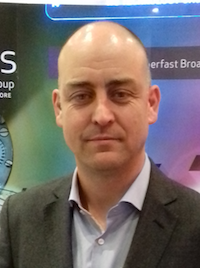The launch of a new partner programme is evidence of BT reinvigorating its channel commitment, according to Steve Rathborne, BT Business Partner Channel Director.
The move follows the integration of EE and BT and enables partners to sell branded fixed and mobile products and services.
"We're looking to extend the benefits to business customers who would like to source BT & EE services through channel partners," said Rathborne.
"BT has committed to invest more than £6bn in improving the speed and coverage of UK broadband and mobile services over the next three years."
The refreshed channel programme is supported by an enlarged partner sales team, a revamped service model, improved training and access to sales and marketing campaigns.
"Collectively, these initiatives will make it easier for partners to work with BT to increase sales and deliver an improved customer experience," added Rathborne.
BT is planning to introduce the Business Partner Gateway in Q3, a portal that offers access to quote tools, customer service channels, management information and marketing collateral.

 ITS Technology Group (ITS) has recruited a former Openreach top exec as MD.
ITS Technology Group (ITS) has recruited a former Openreach top exec as MD. Onecom marked its 15th anniversary with a surprise party for staff and the launch Onecom Employee Plus, a programme of learning, development and rewards designed to boost positivity and productivity inside and outside working hours.
Onecom marked its 15th anniversary with a surprise party for staff and the launch Onecom Employee Plus, a programme of learning, development and rewards designed to boost positivity and productivity inside and outside working hours.